| Friends of
CMNH is celebrating its 81st birthday this year. The Women’s
Committee was established in 1940 with the purpose of promoting the
Museum within the community while helping the institution prosper
through fundraising and volunteer efforts. Over the years, the
Women’s Committee has sponsored wonderful educational programs and
played a critical role in the Museum’s success. Last year, a
committee decided that changing the group’s name to “Friends of CMNH”
would more fully reflect its relationship to the Museum. I am deeply
grateful for the establishment of this group, which has so
positively shaped the Museum through its activities—from securing
funding to supporting popular events like the Explorer Lecture
Series and Women in Science Day. If you are interested in becoming a
member of Friends of CMNH, please visit its webpage to learn more.
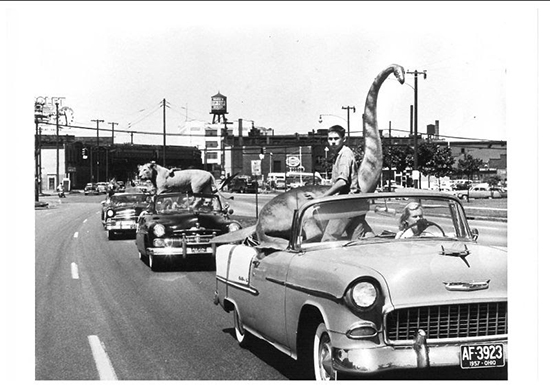
In the transformed Museum, our new Visitor Hall will feature
floor-to-ceiling glass walls that admit natural light. It will also
be free to the public, sharing eight of the Museum’s signature
specimens with the community. On the right-hand side of the above
rendering, you can see a “school of Dunk,” or group of Dunkleosteus
terrelli. The Museum holds the world’s best-preserved specimens of
this prehistoric predator, recently named Ohio’s state fossil fish.
Dunkleosteus ruled the shallow sea that covered Ohio 360 million
years ago, during the Devonian Period. A home in the future Visitor
Hall will put the spotlight on this ferocious fish.
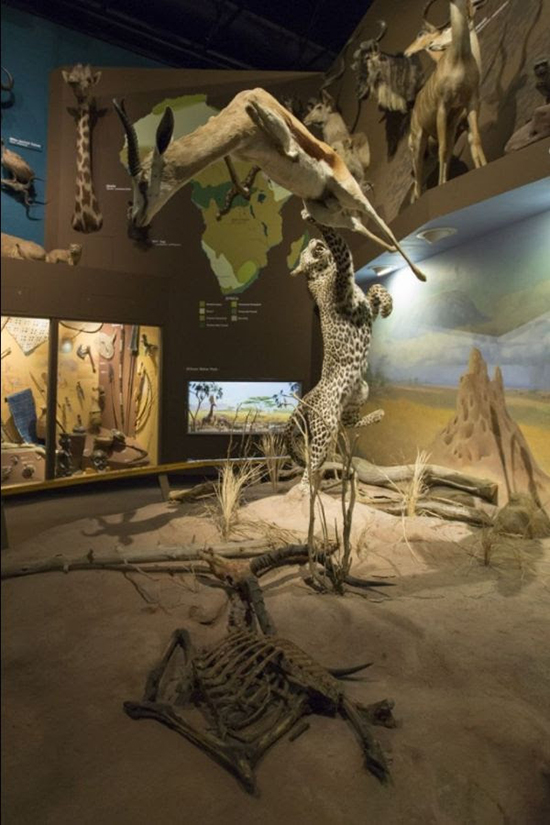
This week, as we continue honoring Museum icons, we feature one of
the more dramatic displays in the Sears Hall of Human Ecology.
Depicting a moment of action that would be difficult to capture in
real life, the display shows a leopard with its paw about to graze
the leg of its catch—a springbok. The African leopard (Panthera
pardus pardus) is a nocturnal species, primarily hunting its prey at
night. Its coloring and pattern allow it to blend in with its
surroundings. Leopards are fierce but nimble hunters, capable of
sprinting at high speeds. They stalk and ambush their unsuspecting
prey, making powerful use of their forelegs, claws, jaws, and teeth.
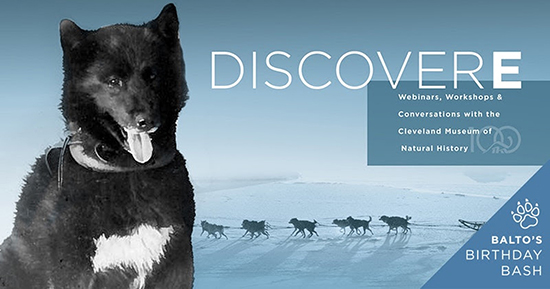
The springbok (Antidorcas marsupialis) is a species of antelope
that browses the low shrubs of the open, dry savannas of southern
Africa. Though springboks are hunted by many predators, their keen
senses of hearing and smell and wide field of vision help them evade
danger. They also live in large herds, which provide safety in
numbers. Springboks are extremely agile—running at speeds of up to
50 mph and leaping as high as 12 feet in the air. The next time you
visit the Museum, stop by Sears Hall to admire this arresting
showdown between predator and prey.
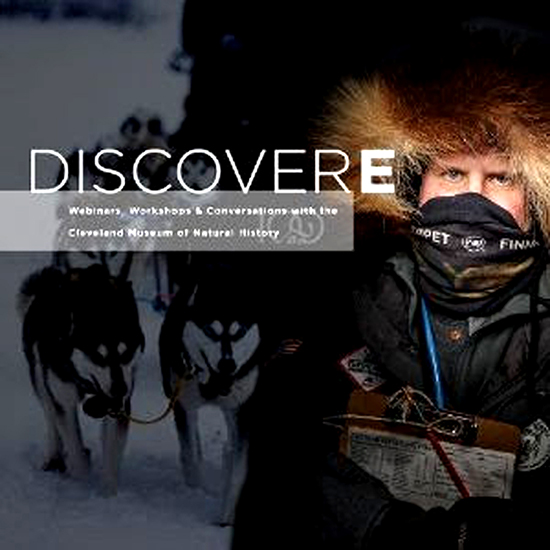
Balto’s Birthday Bash is in full swing with two upcoming Discover E
programs. Dogs of the Iditarod Trail, taking place on Wednesday,
March 24, at 6:30pm, will be co-hosted by the Iditarod Trail Race
Headquarters and Museum. Learn all about the historical Serum Run
and today’s Iditarod from a panel of experts, including a four-time
Iditarod champion and this year’s Iditarod Teacher on the Trail.
Register today for this free virtual event.
Our DiscoverE program on Friday, March 27, at 7pm will feature Dr.
Lee Morgan, an Iditarod Trail veterinarian since 2012. In Running
Under Dancing Lights: A Trail Veterinarian’s Mission to Care for the
Dogs of the Iditarod, Dr. Morgan will share his stories and photos,
plus images by Jeff Schultz, the official Iditarod photographer.
Register for this special online program to learn all about tending
to the 300+ dogs that run the race every year.
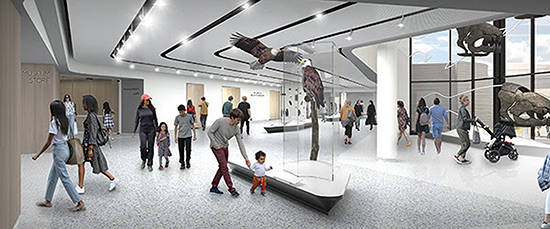
Finally, the Museum is participating in a national survey of
museum-goers, sponsored by the American Alliance of Museums, to
learn how we can better support and engage audiences in 2021. The
results will help us serve our communities more effectively in the
months ahead. Please consider taking this survey to share your
thoughts and have an opportunity to win one of four $100 Amazon gift
cards.
This week, know that each of us can make a difference.
Sincerely,

Sonia M. Winner
|